Global skills, local impact: Celebrating World Youth Skills Day with young climate leaders supported by the British Council, Sri Lanka
Anoka Abeyrathne was just 11-years-old when a tsunami struck Sri Lanka’s coastlines in 2004. Moved to act, she brought together volunteers to restore mangroves along Sri Lanka’s vulnerable coastline to protect coastal communities. Today, Anoka mentors youth across Asia and Africa through Ashridge Education, championing inclusive education and digital literacy grounded in sustainability. It was building these very skills that helped her spark a national movement for environmental justice and youth empowerment- including a presidential gazette for mangrove conservation. As we mark World Youth Skills Day 2025 this July, Anoka’s story is a powerful example of what can happen when skills, systems, and support meet youth leadership.
At 17 years, Anoka was selected as a British Council International Climate Champion. Through decades-long engagement in Sri Lanka’s Non-Formal Education (NFE) space, the British Council has been an enduring advocate of equipping young people with the skills and confidence to engage in meaningful climate action.
The ongoing Educating Girls for Climate Action (EGCA) project, in partnership with the Sri Lanka Girl Guides Association, equips young girls aged 12-17 years with climate literacy and transferable soft skills for the future, urging them forward in their climate journeys.
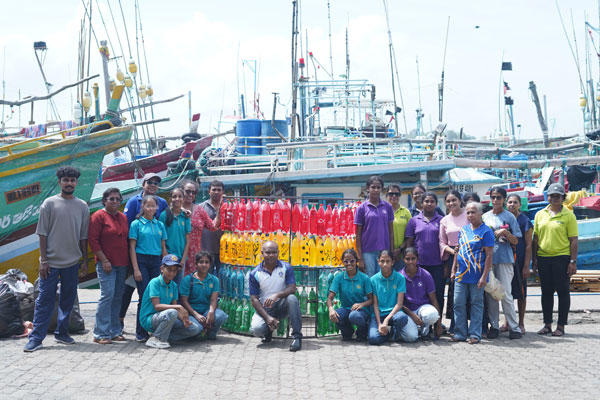
Upcycled bin installed at the fisheries harbour in Mirissa
It is no secret that climate change disproportionately affects women and girls, especially in the Global South. The climate crisis is not gender neutral- women and girls bear the brunt of its impact, which can worsen existing inequities and present new challenges relating to health, livelihoods and safety. The UN estimates that when disaster strikes, women and children are 14 times more likely than men to die, and that an estimated four out of five people displaced by the impacts of climate change are women and girls.
Being at the forefront of climate change makes women and girls uniquely suited to be agents of change. For instance, when faced with rising sea levels that increased the flood risks in their neighbourhoods, fisherwomen in Central Java in Indonesia actively engage with policymakers, raising awareness and fundraising to build bridges. Whether by bringing their community together, devising ingenious solutions, or by becoming environmental stewards, women and girls are actively shaping their future with climate action.
Through the EGCA initiative, young women in their mid-20s to early 30s- trained as Youth Climate Ambassadors- are passing down critical knowledge, lived experiences, and practical skills to Girl Guides. The choice of facilitators by the British Council was deeply intentional- interacting with and learning from facilitators who are closer to their age allows these young girls to see their potential mirrored. The Youth Ambassadors model leadership, critical thinking, and social responsibility to the girls, showing them that these are skills that can be cultivated and put to good use.
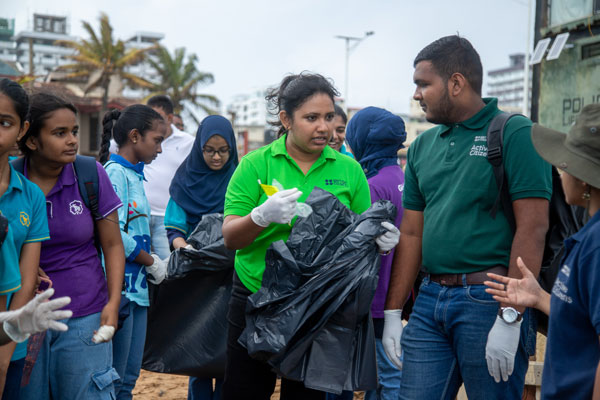
Youth Alumni Network supporting a beach clean-up by the Girl Guides
Beyond climate education, the girls are gaining important skills in communication, public speaking, teamwork, problem-solving and digital storytelling. By building these skills, they are strengthening their confidence and long-term economic potential in a rapidly changing world. “EGCA shaped me into both a learner and leader,” reflects Erandika Ediriweera, a Youth Climate Ambassador turned facilitator. “Now I consider it my turn to give back. It’s been so exciting to support a group of Girl Guides to create a digital comic book on ocean conservation. This year’s theme for World Youth Skills Day is ‘Youth Empowerment Through AI and Digital Skills’ so this project feels especially timely.”
Participants have been encouraged to put words into action with small project ideas that go beyond the classroom. For example, in Colombo and Jaffna, the girls are engaged in developing a socially responsible mindset through beach clean-ups, eco-bricks, mangrove education, marine conservation and e-magazines. While in Matara, planting drives took place to prevent soil erosion, upcycled bins and themed awareness on human impact on climate change through posters and drama. In Kandy, digital storytelling and wall art are underway.
By reimagining what it means to truly engage young people in the pressing issues of our world, it has become possible to nurture a next generation of leaders with genuine commitment and enthusiasm for climate action and social justice. “It’s a replicable model for other countries and sectors”, says Thushara Gunasekera, Programme Manager, NFE, British Council, Sri Lanka. “The general trend when engaging youth is to tick all the boxes, however our team's focus is beyond that. We encourage, equip and trust youth to lead, rather than merely engage them in the name of inclusivity.” She added, “By combining climate science with developing creative problem-solving skills, we can bring in a larger, more diverse group of youth - our youth climate ambassadors-and ensure a cascade of the skills that they acquired to the girls. The projects the girls have designed are so fresh and creative. It has been truly inspiring to watch them develop their confidence and talents.”
EGCA is a current example of the British Council’s commitment to climate cooperation, inclusive education, and empowering the next generation-especially girls-through cultural relations and skill sharing. Through a bold portfolio of initiatives to inculcate youth climate action, the British Council hopes to position Sri Lanka’s next generation as responsible decision makers.
Climate change is happening now, and young people are on the frontline demanding change and action. On World Youth Skills Day 2025, we must resolve to build a foundation for their success with systemic support; by integrating climate education into the national curriculum. Recognising that women and girls especially, must have the critical tools and skills that they need to engage in this crisis will ensure that the next generation is ready for the climate responsibility of the future. The effects of climate change will not wait for adulthood to arrive, and solving it is not limited to those in lab coats with accolades. It starts now, with youth who possess courage, community spirit and the right skills.
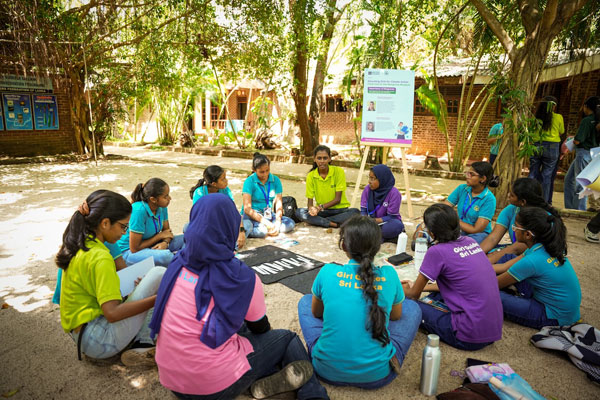
Youth Climate Alumni lead discussions at the Mangrove field visit
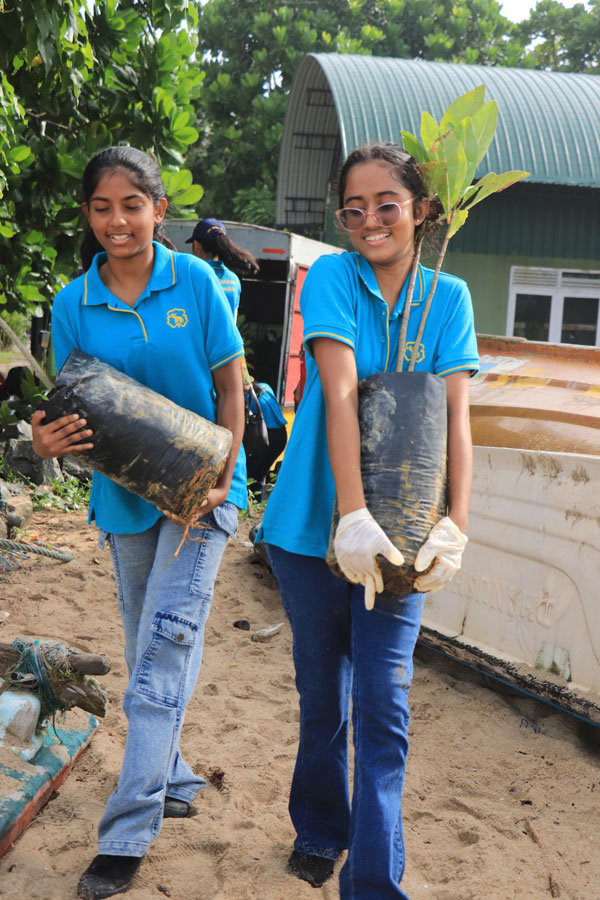
Mudilla planting drive in Kamburugamuwa beach, Matara
-
Prarthana dewmini
Monday, 14 July 2025 06:49 PMI am happy to join this program. Great job
Likes : 0 Dislikes : 0




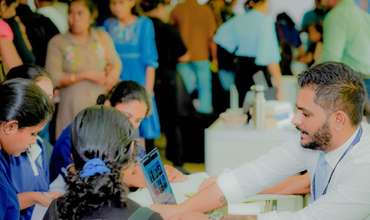
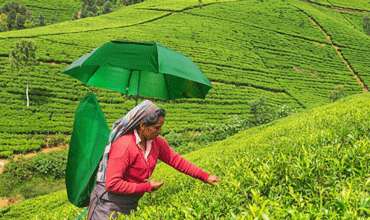
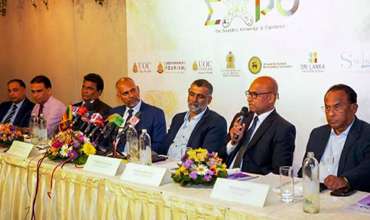


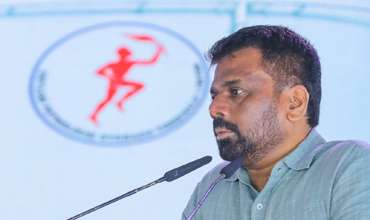



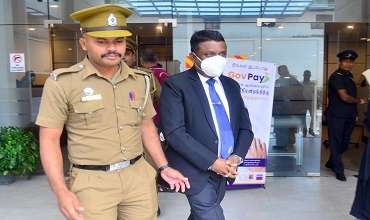
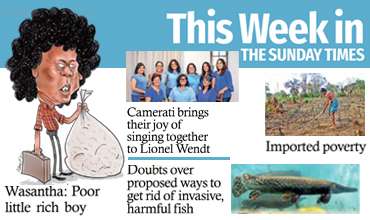
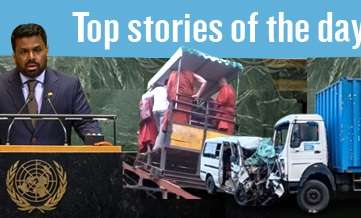
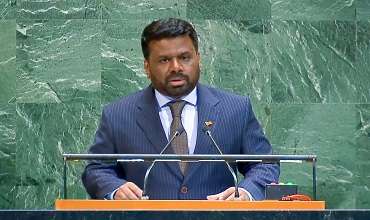

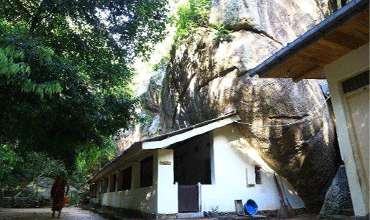
Leave Comments